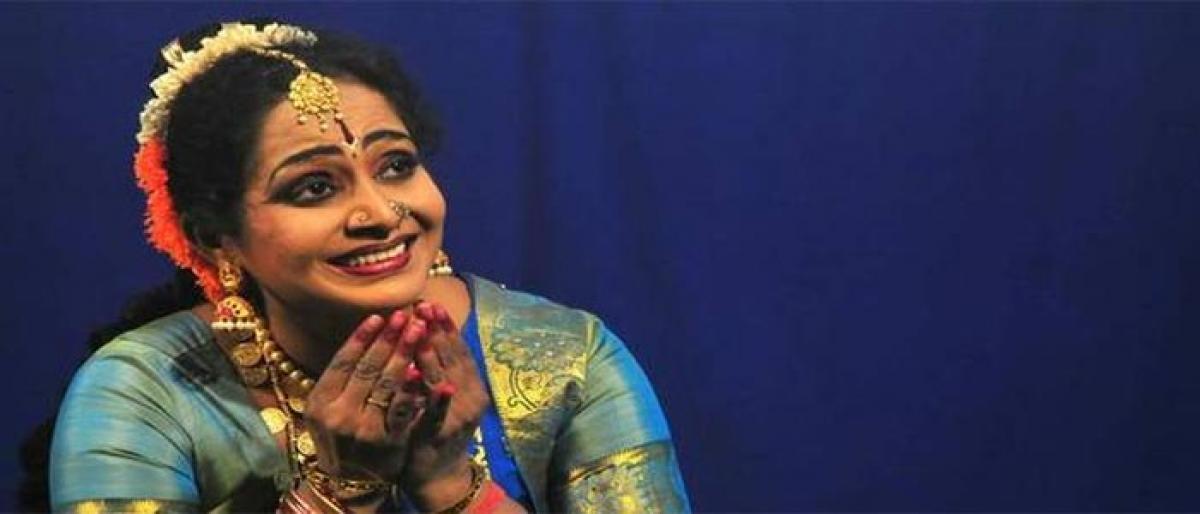Recreating the magic of Javalis

The India World Poetree Festival on Friday at Ramoji Film City had an excellent “Javali” recital by Dr Yashoda Thakore, whose mastery of this genre in the Devadasi style delighted the audience.
The India World Poetree Festival on Friday at Ramoji Film City had an excellent “Javali” recital by Dr Yashoda Thakore, whose mastery of this genre in the Devadasi style delighted the audience. The festival was arranged by Writers Corner - Warangal and attended by delegates from all over the world. Mostly “Javalis”, akin to “Padams” and “Daruvus” are part of southern classical dance repertoire. The composers wrote most of these works consisting generally of “Pallavi”, “Anupallavi”, and “Charanam” in Telugu. Containing a strong erotic flavour, knowledge of the different types of Nayikas portrayed in them is essential for their understanding.
The opening devotional song customarily sung at the deity's ceremonial procession was "Swari Vedalenu" in “Arabhi Ragam” unaccompanied by dance. The first item was exquisitely enacted by Yashoda.
It was Pattabhiramayya's "Nee Matalemayenura". The Nayika taunts her lover with his false promises of bringing her valuable gifts. "Repu Vattavu Ganee" in “Bhairavi” describes the heroine pleading with her lover to leave after being together; without attracting attention from her husband and family lest her life be ruined as a result of being exposed.
Dharmapuri Subba Rao composed in Senjuriti "Pranasakhu Ditu Jesene" showing a Nayika, who has faithfully followed all her lover's instructions unable to understand his scolding! "Ye Reti Bonkevura" in “Gowlipantu” displays the suspicious Nayika angry with his false promises demanding an explanation from her beloved for the marks of turmeric on his body, collyrium on eyes, etc. Yashoda's flashing eyes depicted rage, chagrin and suspicion in superb “Abhinaya”. The enchanting “Kaafi Raga” had "Nede Kada Vattunanuchu" has a waiting heroine alternately despondent and hopeful of her husband's long-awaited return, who tries to console herself with favourable omens delicately enacted by Yashoda.
Dharmapuri's "Smarasundaranguni" in Farazu is a heroine's narrative of her husband's nobility, greatness, and excellence. She rhapsodises on his faithfulness to herself, full of pride in possessing him who is a master in the arts of love. "Nadireyi Gadichene Chellya" by Samudrala in “Begada” shows a heroine in torment that her lord has slipped away and not returned as promised, she weeps in anguish unable to endure her separation.
Ramaraju's "Sakhiya Vinuma", the last item was in an English tune composed thus long ago to please the British. It is full of the Nayika's laments, blaming her co-wife for her husband's abandonment of her and resulting sorrow. All in all, it was a splendid bouquet of gems like “Javalis” set in a necklace of dance by a master artiste to savour.
A booklet containing the “Javalis” with their English translation was distributed to heighten understanding of this musical form.














